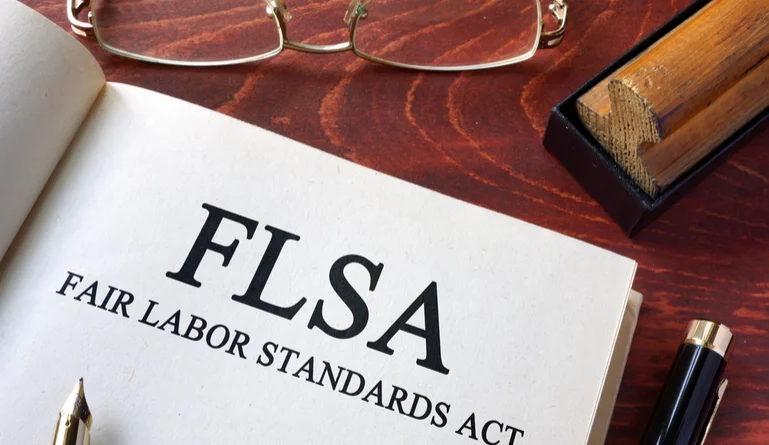Part of your business’s job – specifically some of the responsibilities of HR professionals – is to ensure that your business is following employment laws, standards, and best practices. The Fair Labor Standards Act – known as FLSA for short – has shaped company hiring and employment practices for years and continues to be an important guideline that businesses need to pay attention to and take seriously. Here are some of the most important things to know about FLSA.
What is FLSA?
According to the Department of Labor, FLSA “establishes minimum wage, overtime pay, recordkeeping, and youth employment standards affecting employees in the private sector and Federal, State, and local governments.”
In short, it dictates the fair pay practices that businesses must follow, including the hourly amount that a business can legally pay their workers. It applies to businesses in every sector and industry. It does not apply to freelance, contract, or volunteer employees, as they are not legally considered “employees” and are referred to as “exempt.”
The History of the Fair Labor Standards Act
So where did the FLSA get its start? Why did these laws have to be created and enacted to ensure that people were being paid fairly for their labor?
The FLSA first made its appearance in 1938 and has been revisited and amended many times since then. The leading establishments of FLSA included:
- The adoption of an eight-hour workday and forty-hour workweek as the standards. It also dictated that employees must earn extra wages for extra hours in the form of overtime pay.
- FLSA mandated a minimum wage law, which must be evaluated regularly.
- FLSA also was the driving force behind child labor laws, including the law that children under eighteen cannot work certain jobs and no children under sixteen can work during school hours.
Additional amendments over the years including greater definitions of who had to be paid under overtime laws, provisions for fair pay for equal work, break time laws, and laws regarding workplace safety, standards, and amenities, including, as of 2010 spaces and mandated break times for nursing mothers.
The most important things to know about FLSA
The most important facets of FLSA to pay attention to for most businesses are the following mandates:
- Minimum Wage: One of the first provisions of FLSA is still in effect and essential for all employers to know. The federal minimum wage as of 2009 was $7.25 per hour. States also have their individual minimum wages, and if an employee is subject to both state and federal minimum wage laws, the employee is entitled to the higher minimum wage.
- Overtime: Employees categorized nonexempt are entitled to overtime pay for hours worked over 40 at the rate of at least one and a half times the rate of regular pay. There are no limits to how many hours an employee can work per week, but FLSA doesn’t require overtime pay for work on weekends, holidays, or regular time off unless overtime is worked on such days.
- Hours Worked: Hours worked is defined as the time an employee is required to be on the employer’s premises, on duty, or at a designated workplace.
- Recordkeeping: Employers are required to display an official FLSA requirements poster, as well as keep all employee time and pay records.
- Child Labor: All child labor laws are still in effect and are designed to protect minors from hazardous workplaces and ensure opportunities for education.
Compliance continues to be an essential thing to pay attention to so businesses can maintain a positive reputation, be free of legal repercussions, and maintain good employee relations. The laws regarding a legal business operation may be many, but they are foundational to creating a safe, fair, and successful organization.




